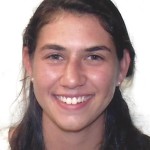My reading
Haftarah Parashat Naso
Judges 13:2-25
13:2 וַיְהִי֩ אִ֨ישׁ אֶחָ֧ד מִצָּרְעָ֛ה מִמִּשְׁפַּ֥חַת הַדָּנִ֖י וּשְׁמ֣וֹ מָנ֑וֹחַ וְאִשְׁתּ֥וֹ עֲקָרָ֖ה וְלֹ֥א יָלָֽדָה׃
13:3 וַיֵּרָ֥א מַלְאַךְ־יְהוָ֖ה אֶל־הָאִשָּׁ֑ה וַיֹּ֣אמֶר אֵלֶ֗יהָ הִנֵּה־נָ֤א אַתְּ־עֲקָרָה֙ וְלֹ֣א יָלַ֔דְתְּ וְהָרִ֖ית וְיָלַ֥דְתְּ בֵּֽן׃
13:4 וְעַתָּה֙ הִשָּׁ֣מְרִי נָ֔א וְאַל־תִּשְׁתִּ֖י יַ֣יִן וְשֵׁכָ֑ר וְאַל־תֹּאכְלִ֖י כָּל־טָמֵֽא׃
13:5 כִּי֩ הִנָּ֨ךְ הָרָ֜ה וְיֹלַ֣דְתְּ בֵּ֗ן וּמוֹרָה֙ לֹא־יַעֲלֶ֣ה עַל־רֹאשׁ֔וֹ כִּֽי־נְזִ֧יר אֱלֹהִ֛ים יִהְיֶ֥ה הַנַּ֖עַר מִן־הַבָּ֑טֶן וְה֗וּא יָחֵ֛ל לְהוֹשִׁ֥יעַ אֶת־יִשְׂרָאֵ֖ל מִיַּ֥ד פְּלִשְׁתִּֽים׃
13:6 וַתָּבֹ֣א הָאִשָּׁ֗ה וַתֹּ֣אמֶר לְאִישָׁהּ֮ לֵאמֹר֒ אִ֤ישׁ הָאֱלֹהִים֙ בָּ֣א אֵלַ֔י וּמַרְאֵ֕הוּ כְּמַרְאֵ֛ה מַלְאַ֥ךְ הָאֱלֹהִ֖ים נוֹרָ֣א מְאֹ֑ד וְלֹ֤א שְׁאִלְתִּ֙יהוּ֙ אֵֽי־מִזֶּ֣ה ה֔וּא וְאֶת־שְׁמ֖וֹ לֹֽא־הִגִּ֥יד לִֽי׃
13:7 וַיֹּ֣אמֶר לִ֔י הִנָּ֥ךְ הָרָ֖ה וְיֹלַ֣דְתְּ בֵּ֑ן וְעַתָּ֞ה אַל־תִּשְׁתִּ֣י׀ יַ֣יִן וְשֵׁכָ֗ר וְאַל־תֹּֽאכְלִי֙ כָּל־טֻמְאָ֔ה כִּֽי־נְזִ֤יר אֱלֹהִים֙ יִהְיֶ֣ה הַנַּ֔עַר מִן־הַבֶּ֖טֶן עַד־י֥וֹם מוֹתֽוֹ׃
13:8 וַיֶּעְתַּ֥ר מָנ֛וֹחַ אֶל־יְהוָ֖ה וַיֹּאמַ֑ר בִּ֣י אֲדוֹנָ֔י אִ֣ישׁ הָאֱלֹהִ֞ים אֲשֶׁ֣ר שָׁלַ֗חְתָּ יָבוֹא־נָ֥א עוֹד֙ אֵלֵ֔ינוּ וְיוֹרֵ֕נוּ מַֽה־נַּעֲשֶׂ֖ה לַנַּ֥עַר הַיּוּלָּֽד׃
13:9 וַיִּשְׁמַ֥ע הָאֱלֹהִ֖ים בְּק֣וֹל מָנ֑וֹחַ וַיָּבֹ֣א מַלְאַךְ֩ הָאֱלֹהִ֨ים ע֜וֹד אֶל־הָאִשָּׁ֗ה וְהִיא֙ יוֹשֶׁ֣בֶת בַּשָּׂדֶ֔ה וּמָנ֥וֹחַ אִישָׁ֖הּ אֵ֥ין עִמָּֽהּ׃
13:10 וַתְּמַהֵר֙ הָֽאִשָּׁ֔ה וַתָּ֖רָץ וַתַּגֵּ֣ד לְאִישָׁ֑הּ וַתֹּ֣אמֶר אֵלָ֔יו הִנֵּ֨ה נִרְאָ֤ה אֵלַי֙ הָאִ֔ישׁ אֲשֶׁר־בָּ֥א בַיּ֖וֹם אֵלָֽי׃
13:11 וַיָּ֛קָם וַיֵּ֥לֶךְ מָנ֖וֹחַ אַחֲרֵ֣י אִשְׁתּ֑וֹ וַיָּבֹא֙ אֶל־הָאִ֔ישׁ וַיֹּ֣אמֶר ל֗וֹ הַאַתָּ֥ה הָאִ֛ישׁ אֲשֶׁר־דִּבַּ֥רְתָּ אֶל־הָאִשָּׁ֖ה וַיֹּ֥אמֶר אָֽנִי׃
13:12 וַיֹּ֣אמֶר מָנ֔וֹחַ עַתָּ֖ה יָבֹ֣א דְבָרֶ֑יךָ מַה־יִּֽהְיֶ֥ה מִשְׁפַּט־הַנַּ֖עַר וּמַעֲשֵֽׂהוּ׃
13:13 וַיֹּ֛אמֶר מַלְאַ֥ךְ יְהוָ֖ה אֶל־מָנ֑וֹחַ מִכֹּ֛ל אֲשֶׁר־אָמַ֥רְתִּי אֶל־הָאִשָּׁ֖ה תִּשָּׁמֵֽר׃
13:14 מִכֹּ֣ל אֲשֶׁר־יֵצֵא֩ מִגֶּ֨פֶן הַיַּ֜יִן לֹ֣א תֹאכַ֗ל וְיַ֤יִן וְשֵׁכָר֙ אַל־תֵּ֔שְׁתְּ וְכָל־טֻמְאָ֖ה אַל־תֹּאכַ֑ל כֹּ֥ל אֲשֶׁר־צִוִּיתִ֖יהָ תִּשְׁמֹֽר׃
13:15 וַיֹּ֥אמֶר מָנ֖וֹחַ אֶל־מַלְאַ֣ךְ יְהוָ֑ה נַעְצְרָה־נָּ֣א אוֹתָ֔ךְ וְנַעֲשֶׂ֥ה לְפָנֶ֖יךָ גְּדִ֥י עִזִּֽים׃
13:16 וַיֹּאמֶר֩ מַלְאַ֨ךְ יְהוָ֜ה אֶל־מָנ֗וֹחַ אִם־תַּעְצְרֵ֙נִי֙ לֹא־אֹכַ֣ל בְּלַחְמֶ֔ךָ וְאִם־תַּעֲשֶׂ֣ה עֹלָ֔ה לַיהוָ֖ה תַּעֲלֶ֑נָּה כִּ֚י לֹא־יָדַ֣ע מָנ֔וֹחַ כִּֽי־מַלְאַ֥ךְ יְהוָ֖ה הֽוּא׃
13:17 וַיֹּ֧אמֶר מָנ֛וֹחַ אֶל־מַלְאַ֥ךְ יְהוָ֖ה מִ֣י שְׁמֶ֑ךָ כִּֽי־יָבֹ֥א דבריך [דְבָרְךָ֖] וְכִבַּדְנֽוּךָ׃
13:18 וַיֹּ֤אמֶר לוֹ֙ מַלְאַ֣ךְ יְהוָ֔ה לָ֥מָּה זֶּ֖ה תִּשְׁאַ֣ל לִשְׁמִ֑י וְהוּא־פֶֽלִאי׃
13:19 וַיִּקַּ֨ח מָנ֜וֹחַ אֶת־גְּדִ֤י הָעִזִּים֙ וְאֶת־הַמִּנְחָ֔ה וַיַּ֥עַל עַל־הַצּ֖וּר לַֽיהוָ֑ה וּמַפְלִ֣א לַעֲשׂ֔וֹת וּמָנ֥וֹחַ וְאִשְׁתּ֖וֹ רֹאִֽים׃
13:20 וַיְהִי֩ בַעֲל֨וֹת הַלַּ֜הַב מֵעַ֤ל הַמִּזְבֵּ֙חַ֙ הַשָּׁמַ֔יְמָה וַיַּ֥עַל מַלְאַךְ־יְהוָ֖ה בְּלַ֣הַב הַמִּזְבֵּ֑חַ וּמָנ֤וֹחַ וְאִשְׁתּוֹ֙ רֹאִ֔ים וַיִּפְּל֥וּ עַל־פְּנֵיהֶ֖ם אָֽרְצָה׃
13:21 וְלֹא־יָ֤סַף עוֹד֙ מַלְאַ֣ךְ יְהוָ֔ה לְהֵרָאֹ֖ה אֶל־מָנ֣וֹחַ וְאֶל־אִשְׁתּ֑וֹ אָ֚ז יָדַ֣ע מָנ֔וֹחַ כִּֽי־מַלְאַ֥ךְ יְהוָ֖ה הֽוּא׃
13:22 וַיֹּ֧אמֶר מָנ֛וֹחַ אֶל־אִשְׁתּ֖וֹ מ֣וֹת נָמ֑וּת כִּ֥י אֱלֹהִ֖ים רָאִֽינוּ׃
13:23 וַתֹּ֧אמֶר ל֣וֹ אִשְׁתּ֗וֹ לוּ֩ חָפֵ֨ץ יְהוָ֤ה לַהֲמִיתֵ֙נוּ֙ לֹֽא־לָקַ֤ח מִיָּדֵ֙נוּ֙ עֹלָ֣ה וּמִנְחָ֔ה וְלֹ֥א הֶרְאָ֖נוּ אֶת־כָּל־אֵ֑לֶּה וְכָעֵ֕ת לֹ֥א הִשְׁמִיעָ֖נוּ כָּזֹֽאת׃
13:24 וַתֵּ֤לֶד הָֽאִשָּׁה֙ בֵּ֔ן וַתִּקְרָ֥א אֶת־שְׁמ֖וֹ שִׁמְשׁ֑וֹן וַיִּגְדַּ֣ל הַנַּ֔עַר וַֽיְבָרְכֵ֖הוּ יְהוָֽה׃
13:25 וַתָּ֙חֶל֙ ר֣וּחַ יְהוָ֔ה לְפַעֲמ֖וֹ בְּמַחֲנֵה־דָ֑ן בֵּ֥ין צָרְעָ֖ה וּבֵ֥ין אֶשְׁתָּאֹֽל׃










